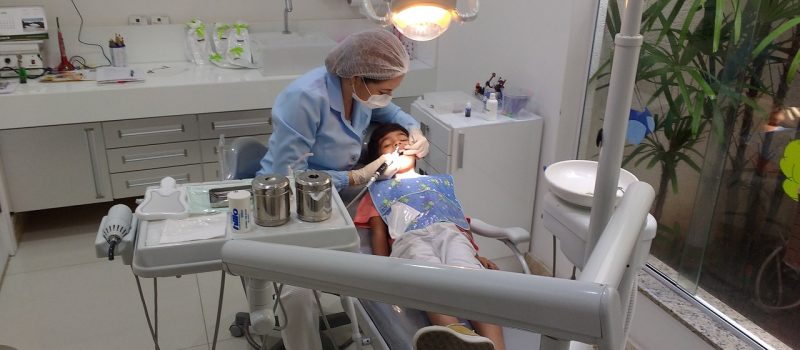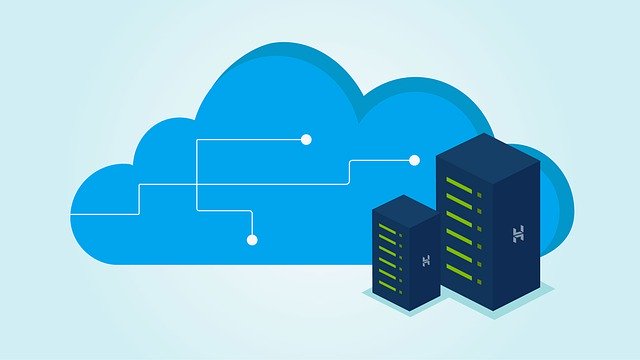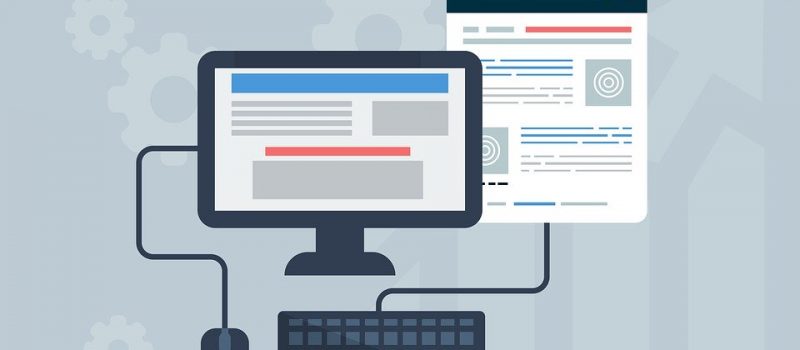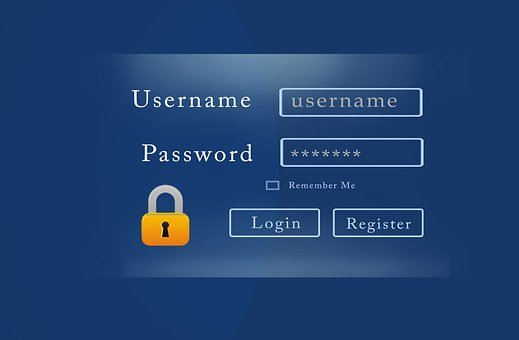In a world where sustainability meets innovation, harnessing the sun’s power has never been more crucial. Imagine a life where you’re not just surviving the outages and unpredictable energy costs but thriving in complete energy independence! Meet the Grid Doctor 3300 Solar Generator—your ticket to a greener, more self-sufficient lifestyle. Whether you’re an outdoor enthusiast looking to fuel your adventures or a homeowner seeking reliable backup during storms, this powerhouse is here to transform how you think about energy. Join us as we explore its cutting-edge features, impressive capabilities, and why it’s time for you to embrace solar power like never before! Ready to unlock the potential of renewable energy? Let’s dive in.
What Is the Grid Doctor 3300 Solar Generator?
In simple terms, the Grid Doctor 3300 is a solar-powered backup power station. It takes solar energy and converts it into usable electricity to charge or run various devices. With a capacity of 3300 watt-hours, this solar generator can power everything from smartphones and laptops to refrigerators and power tools. The device itself is compact and portable, making it perfect for on-the-go adventures or emergencies. It’s also incredibly user-friendly. All you need to do is set up the solar panels, connect them to the Grid Doctor 3300 Generator, and let the sun do the rest. It’s clean, renewable energy at its best.
Powering Small Devices
Let’s start with the small stuff—your everyday gadgets like smartphones, tablets, laptops, and even portable speakers. The Grid Doctor 3300 is more than capable of keeping these powered throughout the day. Whether you’re working remotely from a cabin, streaming movies at a campsite, or keeping your kids’ devices charged during a road trip, the generator provides reliable, quiet energy. With multiple output ports (including AC outlets and USB ports), the Grid Doctor 3300 can handle a wide range of devices at once. Plus, the LCD screen provides real-time info about the charge status, so you’ll always know how much juice you’ve got left.

Running Larger Appliances
What makes the Grid Doctor 3300 a standout option is its ability to power larger appliances. If you’re facing a power outage or want to keep your appliances running off the grid, this generator has the capacity. It can power items like a fridge, microwave, TV, or even a small air conditioner, depending on their wattage. This feature is particularly useful in emergencies. Imagine having the ability to keep your fridge running and prevent your food from spoiling during a long power outage. Or maybe you want to run a few lights, a fan, and a small heater while camping in the winter—it’s all possible with the Grid Doctor 3300.
Charging via Solar Panels
One of the coolest things about the Grid Doctor 3300 is that it’s designed to be fully recharged using solar panels. You just connect the panels to the generator, and the sun takes care of the rest. Depending on the amount of sunlight, you can expect the generator to fully charge in 6-8 …












 Start by doing a visual inspection of the repaired screen. Look closely to see if the screen is aligned with the phone’s frame. Check for any gaps, bubbles, or irregularities where the screen meets the phone. Also, examine the screen for any scratches, cracks, or discoloration. If you notice any physical flaws, it’s essential to contact the repair service right away.
Start by doing a visual inspection of the repaired screen. Look closely to see if the screen is aligned with the phone’s frame. Check for any gaps, bubbles, or irregularities where the screen meets the phone. Also, examine the screen for any scratches, cracks, or discoloration. If you notice any physical flaws, it’s essential to contact the repair service right away.





 At the heart of Instagram’s allure lies its visual-centric nature. To capture users’ attention and drive engagement, marketers must prioritize the creation of visually stunning and compelling content. Invest in high-quality photography, captivating graphics, and eye-catching video clips that align with your brand’s aesthetic and resonate with your target audience. Experiment with various formats, like carousel posts, Stories, and IGTV, to keep your content fresh and diverse.
At the heart of Instagram’s allure lies its visual-centric nature. To capture users’ attention and drive engagement, marketers must prioritize the creation of visually stunning and compelling content. Invest in high-quality photography, captivating graphics, and eye-catching video clips that align with your brand’s aesthetic and resonate with your target audience. Experiment with various formats, like carousel posts, Stories, and IGTV, to keep your content fresh and diverse. Boosting engagement on Instagram requires a strategic approach, compelling content, and genuine interaction with your audience. By creating visually appealing content, knowing your audience, leveraging hashtags effectively, authentically engaging with your followers, harnessing the power of Stories and interactive features, and collaborating with influencers and partners, marketers can elevate their Instagram presence and foster meaningful connections with their audience.
Boosting engagement on Instagram requires a strategic approach, compelling content, and genuine interaction with your audience. By creating visually appealing content, knowing your audience, leveraging hashtags effectively, authentically engaging with your followers, harnessing the power of Stories and interactive features, and collaborating with influencers and partners, marketers can elevate their Instagram presence and foster meaningful connections with their audience.








 Finally, artificial intelligence is a popular trend gaining traction in recent years. AI technology is being used to automate tasks, improve customer service experiences, and provide better insights through data analysis. Many businesses now integrate AI into their workflow for more efficient operations and better customer satisfaction. Big companies invest heavily in AI to stay ahead …
Finally, artificial intelligence is a popular trend gaining traction in recent years. AI technology is being used to automate tasks, improve customer service experiences, and provide better insights through data analysis. Many businesses now integrate AI into their workflow for more efficient operations and better customer satisfaction. Big companies invest heavily in AI to stay ahead …

 Finally, compare prices and features of different software solutions to find the best value for your money. Ensure it offers all the features you need at a cost that fits your budget. Remember to factor in additional costs, such as setup and maintenance fees.
Finally, compare prices and features of different software solutions to find the best value for your money. Ensure it offers all the features you need at a cost that fits your budget. Remember to factor in additional costs, such as setup and maintenance fees.


 Cryptocurrency trading is all about making money. But to make money, you need to understand the market and how it works. This is where AI can be extremely helpful. By using AI, traders can gain insights into the market that they would never be able to obtain on their own. This information can help them make better decisions about when to buy and sell their assets.
Cryptocurrency trading is all about making money. But to make money, you need to understand the market and how it works. This is where AI can be extremely helpful. By using AI, traders can gain insights into the market that they would never be able to obtain on their own. This information can help them make better decisions about when to buy and sell their assets. On top of that, AI is constantly growing and learning. The more data it has to work with, the better it gets at finding patterns and making predictions. So as the market continues to grow, AI will only become more accurate and helpful in trading. However, you need to be careful with the data you feed it. If you’re not careful, AI can quickly start making bad decisions that will cost you money. Overall, AI can be an excellent asset for any trader in the cryptocurrency market.
On top of that, AI is constantly growing and learning. The more data it has to work with, the better it gets at finding patterns and making predictions. So as the market continues to grow, AI will only become more accurate and helpful in trading. However, you need to be careful with the data you feed it. If you’re not careful, AI can quickly start making bad decisions that will cost you money. Overall, AI can be an excellent asset for any trader in the cryptocurrency market.
 Sometimes we wish we have mind-reading abilities like in the movies. It would be easier to know what someone is thinking or feeling, but unfortunately, we don’t have those powers yet. Thankfully, though, there are other ways to help us understand another person better through their actions instead of just words. We can know exactly what they think about us if they have ever had a conversation with others about us through their personal email, notes, or social media posts.
Sometimes we wish we have mind-reading abilities like in the movies. It would be easier to know what someone is thinking or feeling, but unfortunately, we don’t have those powers yet. Thankfully, though, there are other ways to help us understand another person better through their actions instead of just words. We can know exactly what they think about us if they have ever had a conversation with others about us through their personal email, notes, or social media posts. There are many different ways spyware technology can be used to our advantage. Some of these include tracking a child’s location, monitoring computer usage at work or school, and even protecting your home from potential break-ins by installing security cameras outside with hidden ones inside as well! This type of software will allow you peace of mind knowing that someone is always watching out for you. Stay safe and secure online with the help of spyware technology.…
There are many different ways spyware technology can be used to our advantage. Some of these include tracking a child’s location, monitoring computer usage at work or school, and even protecting your home from potential break-ins by installing security cameras outside with hidden ones inside as well! This type of software will allow you peace of mind knowing that someone is always watching out for you. Stay safe and secure online with the help of spyware technology.…
 Another thing to consider when choosing a messaging app is the type of messages you will be sending. Some apps are better for sending text-based messages, while others are better for sending images or videos. It would help if you also considered how often you would be sending messages and their volume.
Another thing to consider when choosing a messaging app is the type of messages you will be sending. Some apps are better for sending text-based messages, while others are better for sending images or videos. It would help if you also considered how often you would be sending messages and their volume. If you are looking for a messaging app that offers automation capabilities, you should consider using an app like Slack or HipChat. These apps allow you to automate tasks like sending messages based on specific keywords or triggering events. This can be helpful for businesses that want to send automated messages to their customers. So, which messaging app is right for you? It depends on your needs and what you are looking for in a messaging app. Considering the features of the different apps will help you make a decision.
If you are looking for a messaging app that offers automation capabilities, you should consider using an app like Slack or HipChat. These apps allow you to automate tasks like sending messages based on specific keywords or triggering events. This can be helpful for businesses that want to send automated messages to their customers. So, which messaging app is right for you? It depends on your needs and what you are looking for in a messaging app. Considering the features of the different apps will help you make a decision.
 There are several reasons you might want to try using fractional content. One great benefit is that it allows people from all over the world, even those with disabilities or issues accessing devices, to access your information more easily. It also benefits search engine optimization because Google and other large corporations can use advanced algorithms to determine what type of content is being shared and how it can be best presented to the end-user.
There are several reasons you might want to try using fractional content. One great benefit is that it allows people from all over the world, even those with disabilities or issues accessing devices, to access your information more easily. It also benefits search engine optimization because Google and other large corporations can use advanced algorithms to determine what type of content is being shared and how it can be best presented to the end-user.
 A VPN allows you to hide your identity and modify your location when browsing. It manages this by redirecting data connection through servers in various places, changing the IP that Netflix identifies. In addition, it enables you to access location-restricted content because Netflix offers specific material to particular regions only. The company determines depending on factors such as perceived audience, cost, and ratings of the show. That way, you can enjoy more content than allowed in your area, thus having top-notch entertainment.
A VPN allows you to hide your identity and modify your location when browsing. It manages this by redirecting data connection through servers in various places, changing the IP that Netflix identifies. In addition, it enables you to access location-restricted content because Netflix offers specific material to particular regions only. The company determines depending on factors such as perceived audience, cost, and ratings of the show. That way, you can enjoy more content than allowed in your area, thus having top-notch entertainment. There are free VPNs and others that users have to pay for. However, the free ones provide less functionality and are highly likely to offer unreliable connectivity. So, to avoid the issue, you have to dig deeper into your pocket to get the paid VPNs, which overcomes the problems. So, you incur extra costs, but since you can connect to more site besides Netflix, the additional cost is worth it.
There are free VPNs and others that users have to pay for. However, the free ones provide less functionality and are highly likely to offer unreliable connectivity. So, to avoid the issue, you have to dig deeper into your pocket to get the paid VPNs, which overcomes the problems. So, you incur extra costs, but since you can connect to more site besides Netflix, the additional cost is worth it.
 It is vital to know what external and internal partners can be impacted when implementing your digital asset management system. Therefore, you need to get them on board from the beginning. Ensure you communicate with your stakeholders throughout the journey and understand how the system works. An important part of digital asset management is to get it right from the beginning. It does not matter how great your software is, if it is used incorrectly, it will not be of help.
It is vital to know what external and internal partners can be impacted when implementing your digital asset management system. Therefore, you need to get them on board from the beginning. Ensure you communicate with your stakeholders throughout the journey and understand how the system works. An important part of digital asset management is to get it right from the beginning. It does not matter how great your software is, if it is used incorrectly, it will not be of help.
 company narrowly specializes in its field. She knows everything and even more about computers, which allows her to provide services of the highest quality compared to even qualified employees. Unlike hired one-time workers, the outsourcer builds an IT structure with you.
company narrowly specializes in its field. She knows everything and even more about computers, which allows her to provide services of the highest quality compared to even qualified employees. Unlike hired one-time workers, the outsourcer builds an IT structure with you.
 When cloud technology was not yet around, transferring of data needs extra patience. You have to wait for some time until all your data are moved. Much more when you need to transport massive files. It may challenge your patience because it may take days! With the best software, you can move tons of files every day. For sure, it will not take you long before you transfer all your data.
When cloud technology was not yet around, transferring of data needs extra patience. You have to wait for some time until all your data are moved. Much more when you need to transport massive files. It may challenge your patience because it may take days! With the best software, you can move tons of files every day. For sure, it will not take you long before you transfer all your data. Transferring large files is not only be useful for internal use only. Sometimes, you may have to share data with benefactors and agencies with work-related interests in your business. Sometimes, you may also have to share some files with customers. This will enhance your working relationship with them, which will surely help your company in one way or another.
Transferring large files is not only be useful for internal use only. Sometimes, you may have to share data with benefactors and agencies with work-related interests in your business. Sometimes, you may also have to share some files with customers. This will enhance your working relationship with them, which will surely help your company in one way or another.
 opt for the best ultra wide monitor, which is also ideal for other browsing functions. Getting the right gaming monitor will improve your experience as you play these games. You will have a clear view of the different games you are playing. Good gaming monitors have an excellent refresh rate, which is vital for smooth gameplay. Refresh rate determines the number of frames per second your PC will display. This is also essential for a reduced motion blur. A good gaming PC should also offer the best color display. This will grant you the best viewing experience.
opt for the best ultra wide monitor, which is also ideal for other browsing functions. Getting the right gaming monitor will improve your experience as you play these games. You will have a clear view of the different games you are playing. Good gaming monitors have an excellent refresh rate, which is vital for smooth gameplay. Refresh rate determines the number of frames per second your PC will display. This is also essential for a reduced motion blur. A good gaming PC should also offer the best color display. This will grant you the best viewing experience. need to consider the resolution of the gaming monitor you are buying. This is something that may vary from one monitor to another. High-resolution PCs are the best because they will give you the best viewing experience. You will have a smooth time as you play different games on your monitor.
need to consider the resolution of the gaming monitor you are buying. This is something that may vary from one monitor to another. High-resolution PCs are the best because they will give you the best viewing experience. You will have a smooth time as you play different games on your monitor.

